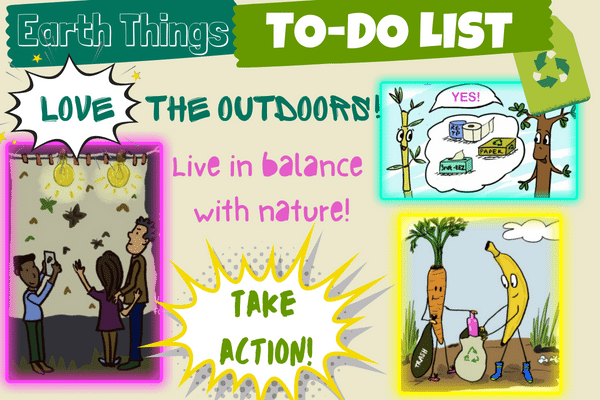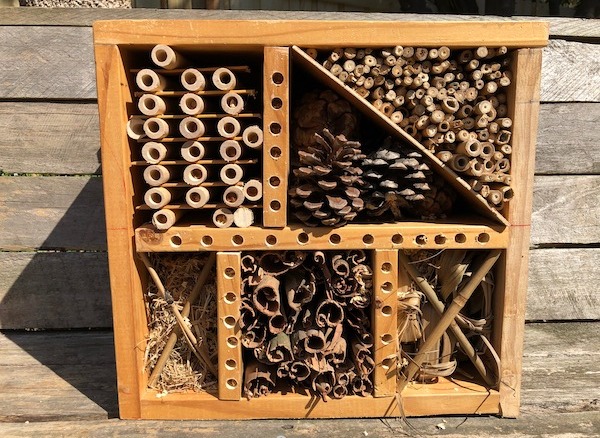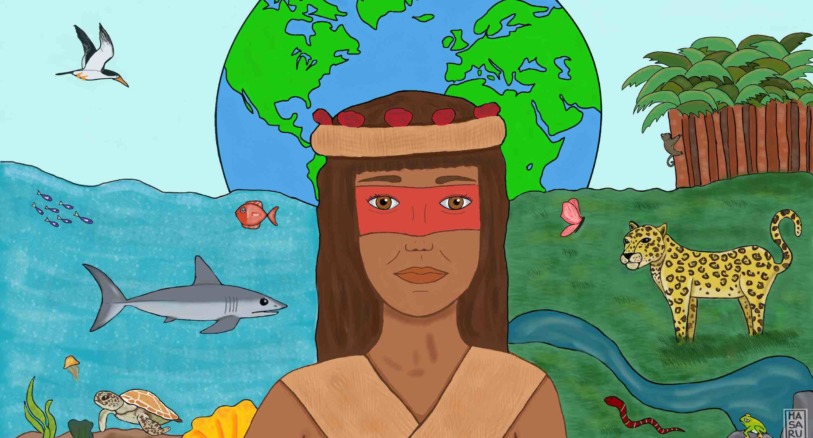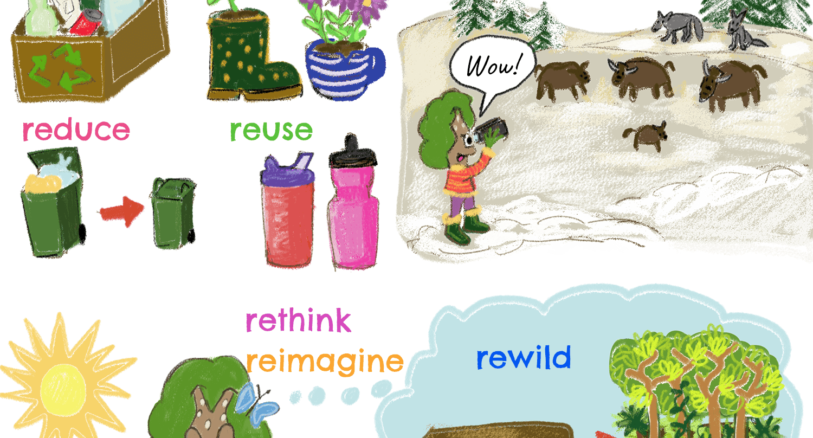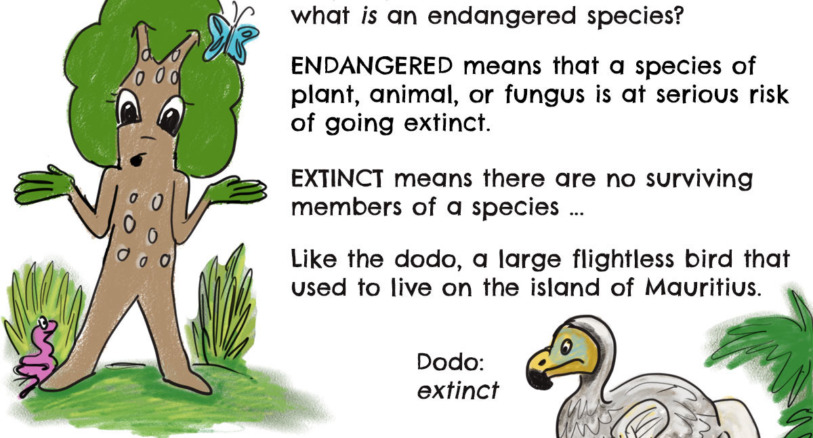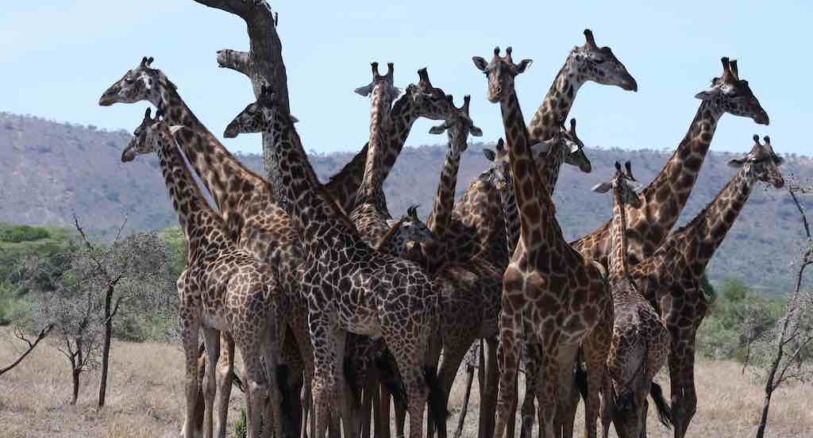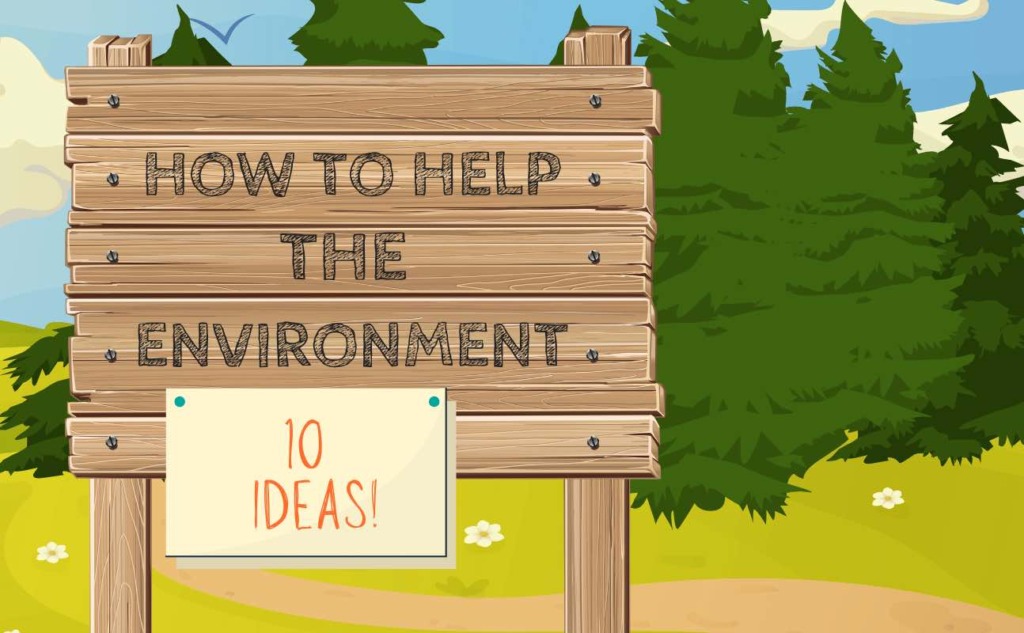
10 earth-friendly actions for kids and their adults:
Choose the actions that are right for you.
Talk to a plant!
Talking to plants helps people feel happy. Pick a houseplant or outdoor plant and say “hello,” or give a tree a hug! Notice the unique and interesting features of the plants around you. Also, check out Sofia Ceiba’s plant-themed talk show, Talking to Plants.
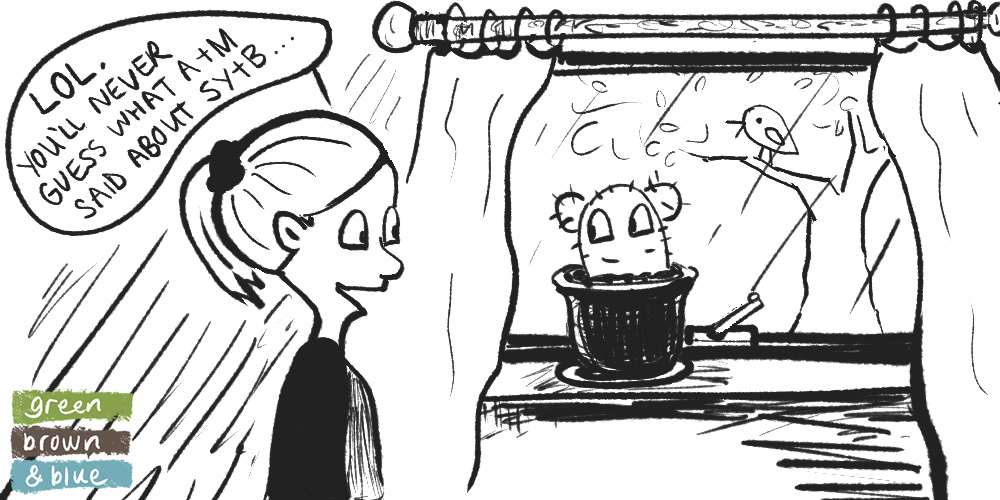
Plant a native plant.
Native plants are plants that grow naturally in your area. They fit right in and create important habitat for local animals. Ask your parents if you can plant a native plant in your garden. Or, participate in a planting in a community space, park, garden, or local reserve. To find out which plants are best for your area, consult your local nursery, botanic garden, or gardening group. Happy planting!
Build an ‘insect’ hotel.
Hotels can provide important habitat for solitary bees and other tiny creatures like spiders and centipedes. Different animals like different types of hotels. Do some research about the tiny creatures in your area and what habitats they like to rest or nest in.
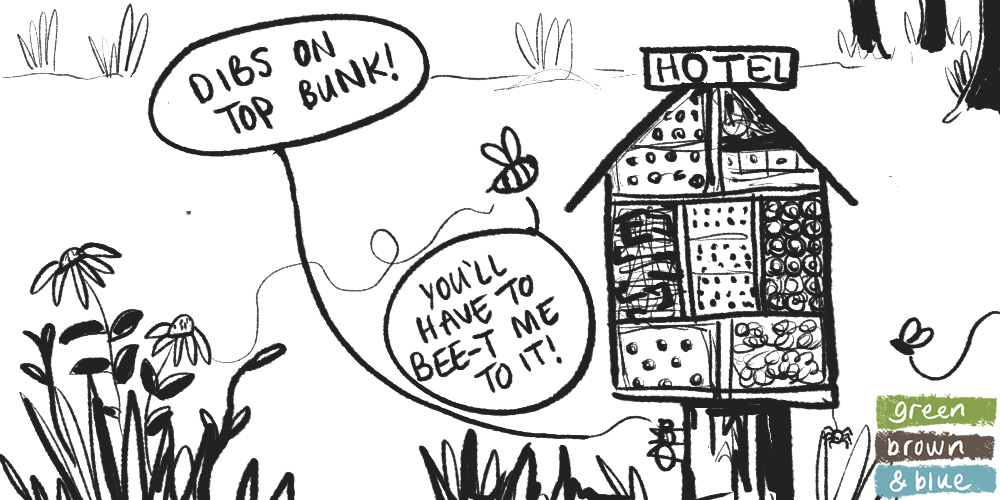
Practice environmentally friendly habits.
Some ideas: Don’t waste food. Compost food scraps instead of throwing them away. Aim to reduce your consumption (what you buy and use), reuse what you can, and repurpose things (find new uses for old or unwanted items). Also, recycle plastics, glass, paper, and other recyclable items. Learn more here.
Organize a cleanup.
Organize a cleanup with your family or community. A lot of garbage (rubbish) finds its way into nature. But we can do something about this! Clear waste from your yard, local stream, park, or beach. Dispose of waste appropriately – either by throwing it away or by recycling or reusing it. Take precautions: find a grown-up to clean with you because not all garbage is safe to handle.
Help keep your pet cat indoors at night.
Cats are skilled hunters. They are thought to kill billions of birds, reptiles, and small mammals around the world each year. Keeping your pet cat indoors is a way to stop them from hunting. If you can’t keep your cat indoors at all times, keeping them indoors at night can make a big difference.

Raise funds for an environmental cause you care about.
Look up environmental or conservation programs in your area that take donations. Or perhaps you’d like to support efforts in another part of the world, like orangutan conservation in Indonesia or rainforest protection in South America. There are many good causes to support – your parents or teachers can help you find one that interests you. Some ideas for raising funds include a school bake sale, a garage sale (of used clothes or home goods), or a fun run. Another way to support an organization is by volunteering.
Take time to rethink the way we live and reimagine a more sustainable world.
Share your ideas about the importance of the environment or how we can improve it with your friends, family, teachers, and community.
Write letters to local, state, and federal officials and tell them that a healthy environment matters.
You can also write to your favorite toy or clothing company. Share your thoughts about what the environment means to you and your ideas about how we should protect it. You can send drawings or paintings as well. You may want to work on your letters/artwork by yourself or with your teacher and school classmates.
Join an environmental event in your community.
There are many environmental celebrations, such as Earth Day. Going to a festival or event will help you learn more about the environment. And, you will meet other people who care about our planet. Your parents can help you find an event in your area.
You may also like
What do we do with our stuff when we’re done with it?

Book Look: The Boy Who Grew a Forest

What can you do to help Earth?
